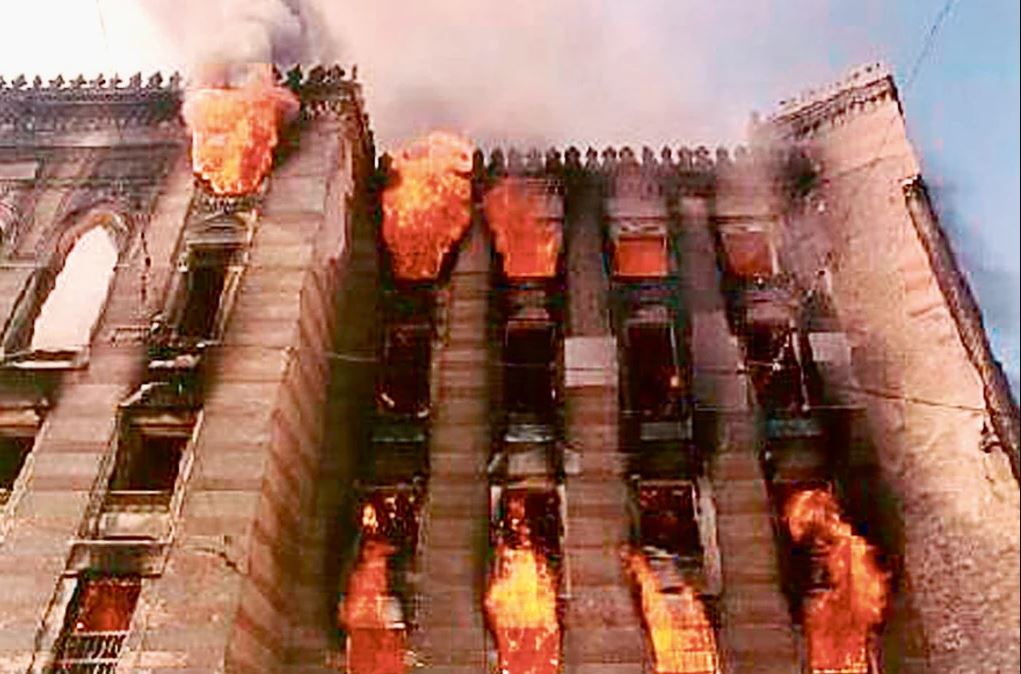The first burning of the books in Nazi Germany was a publicity stunt. Students seeking to curry favour with the new government in 1933 lit a bonfire in Berlin’s most important street, Unter den Linden, and threw on thousands of books by Jewish, Communist and gay writers seized from bookshops and libraries.
A crowd of 40,000 watched and cheered. Joseph Goebbels gave a rousing speech commending the students for destroying “the evil spirit of the past”.
Well, we all know what that led to. The bonfire was supposed to be about defeating evil, but Nazi book burning became a potent symbol for the destruction of knowledge, heritage, wisdom and virtue, and a harbinger of genocide.
Yet just as there were heroes who rescued Jews from the regime, there were also heroes who rescued books. In the Vilna ghetto in 1941, a group of Jewish scholars, librarians and workers known as the Paper Brigade were given the task of sorting out huge quantities of books.
Some books were sent to the nearby Frankfurt Institute, others were condemned to the paper mill. But at the risk of death, the sorters managed to subvert their orders by hiding thousands of books and documents in their clothes and smuggling them back into the ghetto.
Read the article by Jane Sullivan in The Sydney Morning Herald.

